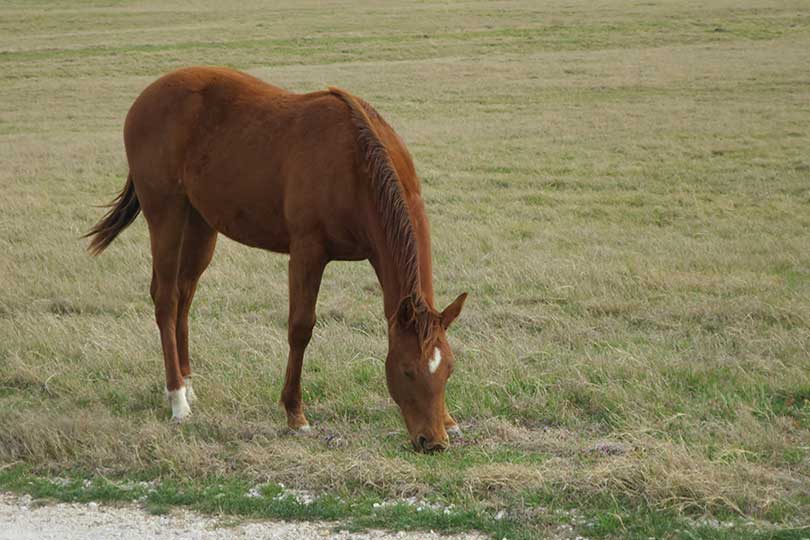Spring has officially arrived in the Lone Star State. Bluebonnets are blooming. The sun is shining, and green grass has returned. Although many of us appreciate the return of the season, the green grass that comes along with it can be a problem for some horses–especially those that are overweight or an easy keeper.
“The horses that have historically been called easy keepers are those horses that seem to gain weight while eating very little food,” Dr. Bob Judd, host of Texas Vet News on the Texas Farm Bureau (TFB) Radio Network, said. “We now know that many of those horses are resistant to insulin and have a condition called Equine Metabolic Syndrome.”
Equine Cushing’s Disease also makes horses resistant to the effect of insulin. That resistance can cause high insulin levels in the horse’s blood when he/she is exposed to a large amount of carbohydrates, which is common in lush, spring grass.
“High levels of insulin are one of the trigger factors for horses to develop a painful, and potentially deadly, foot condition called laminitis, which can lead to founder,” Dr. Judd said.
Horses that are overweight or easy keepers should not be turned out on a pasture with lush, green grass, to prevent laminitis and the potential for founder, according to Dr. Judd.
“I know horses are better turned out in the pasture, but in this case, you may need to section off an area of the pasture that does not have lush pasture for the horse to graze,” Dr. Judd said.
Another option is to use a grazing muzzle to decrease the amount of grass the horse can ingest.
“Some grazing muzzles are better than others,” Dr. Judd said. “All can be difficult to keep on the horse, so invest in a good grazing muzzle if you decide to try one.”
If your horse is thin and does not have a weight issue, Dr. Judd recommends gradually turning the horse out in a new pasture to prevent colic.
“Start at 30 minutes once a day and gradually increase turnout over a period of several weeks,” Dr. Judd said.
Texas Vet News and other programs from the TFB Radio Network can be found here: https://texasfarmbureau.org/radio/.

